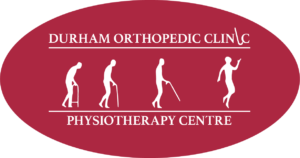Torticollis, also known as wryneck, cervical dystonia or spasmodic torticollis, is a condition in which the muscles that control neck movement are locked into an involuntary contraction. This causes the head to rotate and tilt in an abnormal angle towards the shoulder.
Torticollis often occurs in newborns due to the sustained position of the baby in the womb resulting in a shortening of the sternocleidomastoid muscle on one side of the neck. Infants may develop torticollis from sleeping with their heads in the same position against the mattress. Physiotherapy is indicated for this population to stretch the tight muscles in the neck. This condition is easily treatable with physiotherapy.
In adults, there are usually three main causes for torticollis.
Trauma
Bending or twisting your neck too far can lead to acute torticollis. A whiplash injury to the neck may also cause a torticollis.
Family History
We tend to see a genetic link to torticollis where torticollis may affect siblings in the same family and first degree relatives. It is believed that an abnormal gene is responsible for a proportion of these conditions that run in a family.
Infection
Viral infections, respiratory or soft tissue infections of the neck may cause cervical torticollis. For these conditions, you must see a doctor for medication to help with the infection.
Clinical Presentation
Torticollis can cause disabling pain worse with turning your head to the opposite side. There is a significant limitation in the range of motion. The neck muscles on the affected side hurt and are often tender to touch.
Treatment options for adults with torticollis include:
- Heat to help the tight muscles relax.
- Medications including muscle relaxants and anti inflammatory medication.
- Physiotherapy treatments including manual stretches and mobilizations to the neck to help increase the range of motion and decrease the pain
- Botox. In cases of chronic muscle spasms and cervical dystonia, Botox may provide relief by preventing the muscles from contracting.
If you are in need of physiotherapy for a neck injury, call the Durham Orthopedic and Sports Injury Clinic to see one of our knowledgeable professionals at 905-428-7800 to get you on the road to recovery.


